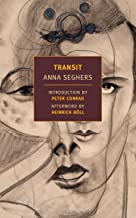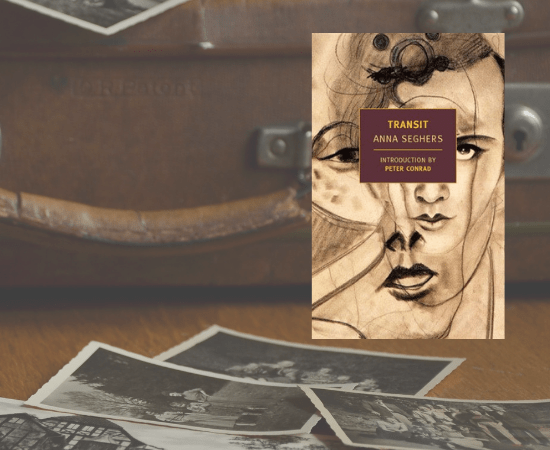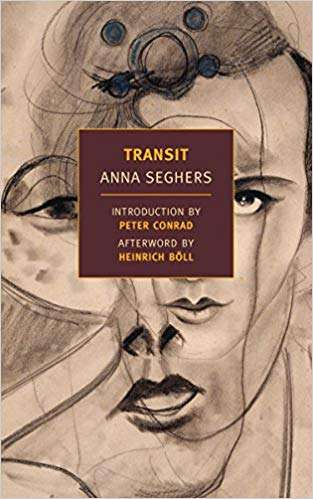Transit by Anna Seghers
What can a novel written in the early 1940s teach us today about national identity? Plenty, especially when a German director like Christian Petzold portrays it as a kaleidoscope of time, place, person and politics. “Transit,” his adaptation of Anna Seghers’ novel (New York Review Books Classics) of the same name, opens March 1. The book follows a young Communist as he escapes from a German camp, then a French camp, then German-occupied Paris and finally comes to the Mediterranean port city of Marseilles, “the city where Europe ends.” There, he joins the hordes of emigrants fleeing the Nazis as they wait in a Kafkaesque limbo fed by rumors, harbor gossip and despair. Remember those “letters of transit” that powered the plot of “Casablanca?” In Marseilles, letters of transit are only one portion of a paper trail of exit visas, passes, permits and tickets required by anyone trying to leave. Often, by the time the final one is acquired, the first has expired. In Paris, the narrator promises to deliver a letter to a famous writer, but discovers the man has killed himself. Taking possession of his unfinished manuscript and several crucial documents necessary for escape, in Marseilles the narrator is mistaken for the dead man. When he is attracted to a woman who seems to be looking for someone, often appearing as he sits in a café, the book becomes a love story, of sorts. The woman, he eventually discovers, is the wife of the dead writer, and it is her husband she seeks. Should he tell her that her search is in vain? Or should he lie to get that last piece of paper to leave with her? The theme of escape in the novel is no stranger to the author’s own personal history. Anna Seghers was born Anna (Netty) Reiling in 1900 in Germany. Her family was Jewish, and she married a Jewish Hungarian communist. She joined the party in 1928, and was arrested for writing against fascism as Hitler came to power. Seghers and family fled to Paris, and after it fell to the invading German army, escaped to Marseilles and a year later to Mexico. In the novel, Seghers drew on her own experiences of waiting in consulates and offices, hearing the stories of fellow refugees trying to get their papers in order. She describes Marseilles as a timeless place, echoing with the voices of Phoenicians and Greeks, Cretans and Jews, Etruscans and Romans, all emigrants in their time. “The remnants of crushed armies, escaped slaves, human hordes who had been chased from all the countries of the earth, and having at last reached the sea, boarded ships in order to discover new lands from which they would again be driven: Forever running from one death toward another,” her narrator observes. Seghers began writing Transitin Mexico, and it’s been called her most perfect novel. By 1948, she had returned to Germany and lived in East Berlin until her death in 1983. Prolific and politically active, she was awarded the 1947 Georg Büchner Prize, the most important literary award for German works, for her novel, The Seventh Cross. It was turned into a 1944 movie starring Spencer Tracy, and was one of the earliest cinematic depictions of Nazi concentration camps. In 1951, Seghers received both the Stalin Peace Prize and the National Prize of the GDR for literary achievement, and in 1967 was nominated for the Nobel Prize in Literature. Director Christian Petzold calls “Transit” the last of his “Love in the Times of Oppressive Systems” trilogy, along with “Barbara,” about an East German doctor under surveillance by the Stasi, and “Phoenix,” about a Holocaust survivor who suspects her husband turned her in to the SS. Petzold is one of the leaders of the Berlin School known for ambitious, independent movies. The real star of his latest is existentialism: neither a person, nor a place, nor a time, but the existence of all at once. Expect the unexpected. Transit is now available for purchase.Buy this Book!
Amazon
Genre: Fiction, Potpourri
Author: Anna Seghers
ISBN: 9783746637880




